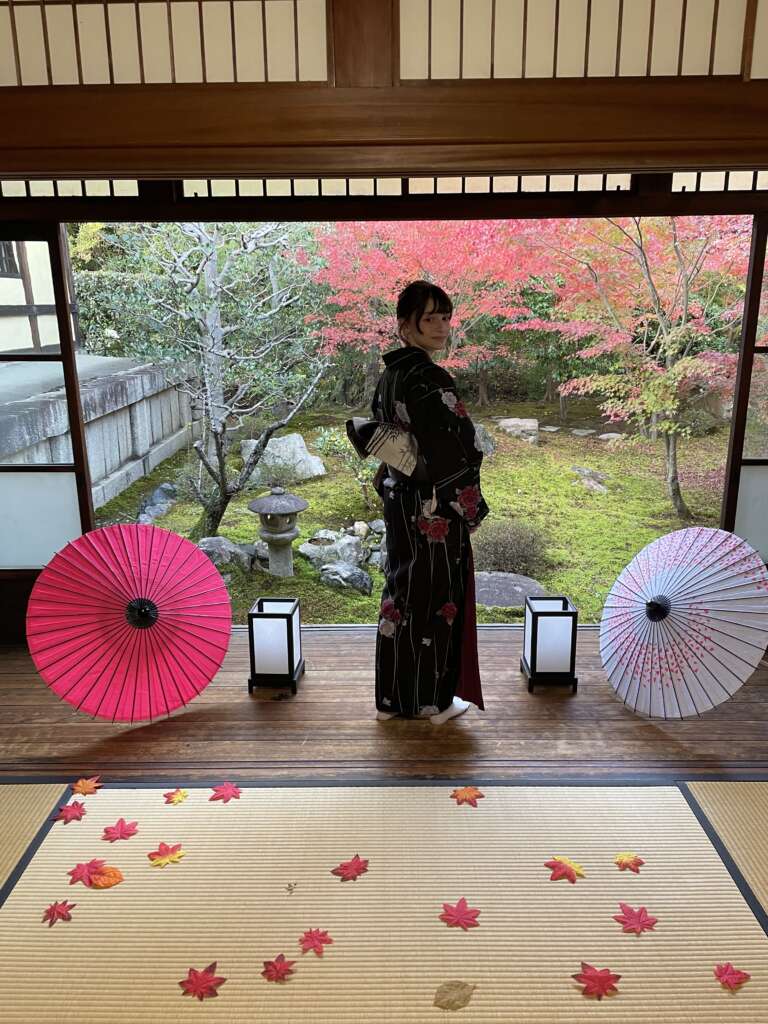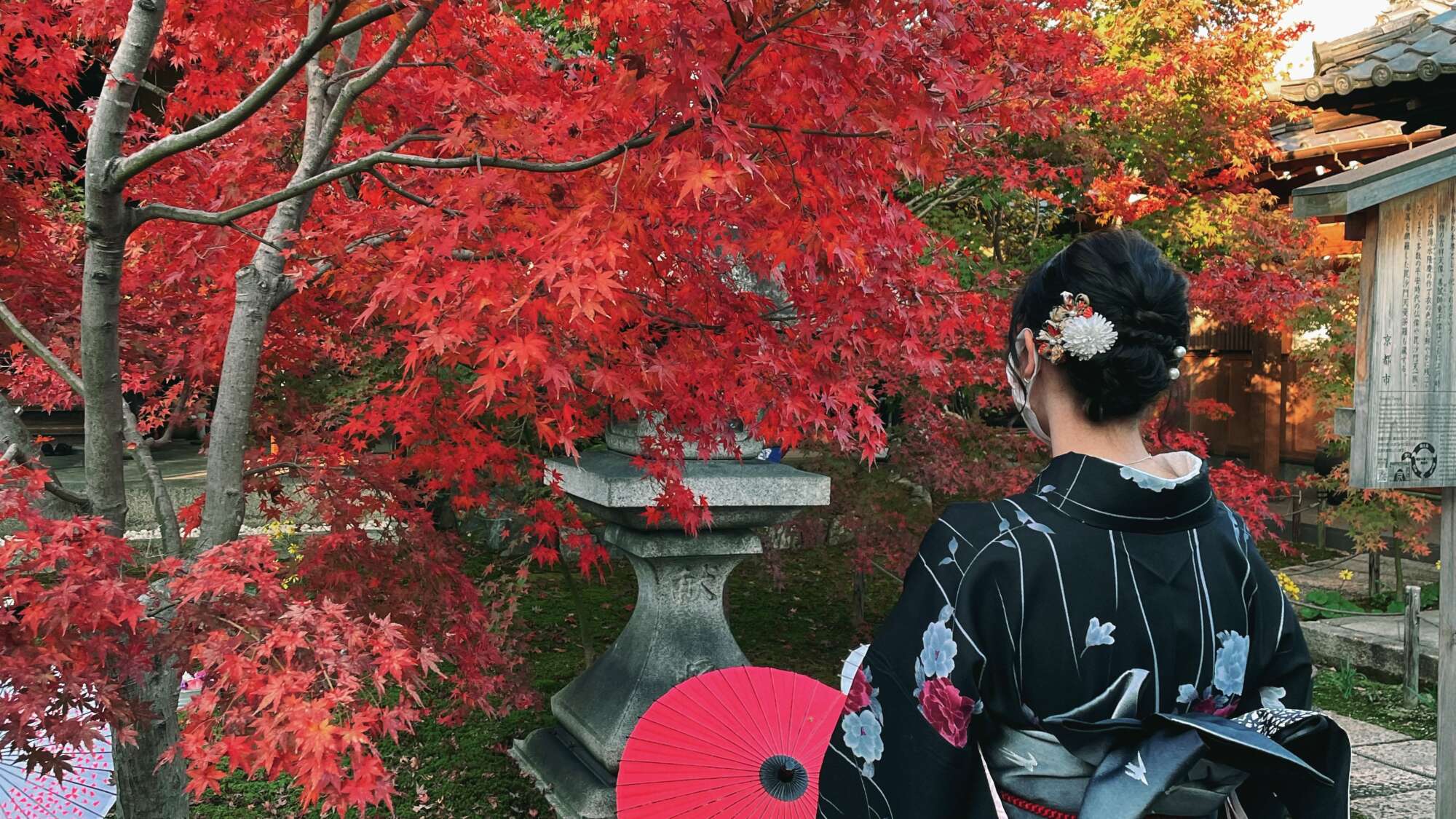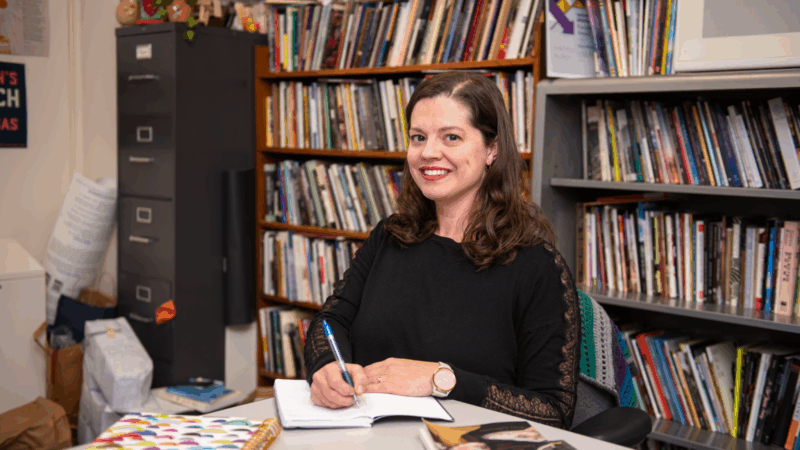K-State tutor’s path to Japanese proficiency
Passionate language enthusiast Celina Trojnar’s journey into Japanese language and culture started with a low-level linguistics class which blossomed into a love for travel and creating meaningful connections.
Now, as a Japanese tutor at Kansas State University, Celina infuses her sessions with fun and curiosity, turning mistakes into learning successes. An ace in academia with a string of scholarships and awards behind her, Celina’s infectious enthusiasm promises an exciting ride through modern languages.
What sparked your interest in Japanese language and culture, and how has that passion evolved?
My interest in Japanese came from my interest in linguistics. I took a linguistic course in my freshman year that explained Japanese sentence structure. I remember feeling eager to learn about the functions of the language. It really intrigued me.
Now much of my passion has shifted toward travel and interpersonal communication. I’ve learned communicating effectively facilitates deeper connections and conversations. I would like to revisit Japan someday and conversing in Japanese while there is a skill I would like to preserve and continue growing in.
As a tutor at K-State, what strategies do you employ to make learning Japanese enjoyable and accessible for students of varying proficiency levels?
Students at all levels must learn from what is difficult. I approach my teaching strategies based on their current comprehension and employ a casual environment that’s comfortable for students to make mistakes. My time abroad taught me I’ll make mistakes when talking to native speakers, but practicing openly and earnestly is one of the best ways to progress.

How can proficiency in Japanese open doors professionally and personally in today’s interconnected world?
I’ve made friends with those learning Japanese here at K-State and with the Japanese friends I made abroad. Socializing with others, especially from international communities, has been enlightening and important in my development as a student and person. Japanese has impacted how I think about language by helping me become an intentional writer, a great skill in any career.
Have you received any scholarships?
I was able to study for a semester at Nagoya University of Foreign Studies because I received the Goss Scholarship. It made it possible for me to travel and participate in cultural opportunities. This year I received the Ichiki Japanese Language Award, which was helpful in supplementing my studies. I have found great opportunities here at K-State, such as becoming proficient in a language that opens avenues for employment and exploration.
What are the most rewarding aspects of teaching Japanese? And what unique challenges do students encounter?
Teaching has allowed me to practice my language learning, develop skills in instruction and build a community within the Japanese-language program.
Japanese is difficult. It has three writing systems, phonic sounds that English doesn’t have, and completely different grammatical structures. I encourage restructuring how we think about language formation, away from using English and translation from English as a “default,” so students learn more and identify patterns. Even just speaking casually in Japanese helps them have a real-world speaking experience.
Looking ahead, how will using your expertise in Japanese language and culture continue to positively shape your life?
The communities and relationships I have built as a Japanese-language student have greatly impacted my time as a student and a person for the best! In general, knowledge of other languages benefits many areas of personal and professional development. I would like to travel again to Japan, so communicating is an integral part of having a full experience for me.





